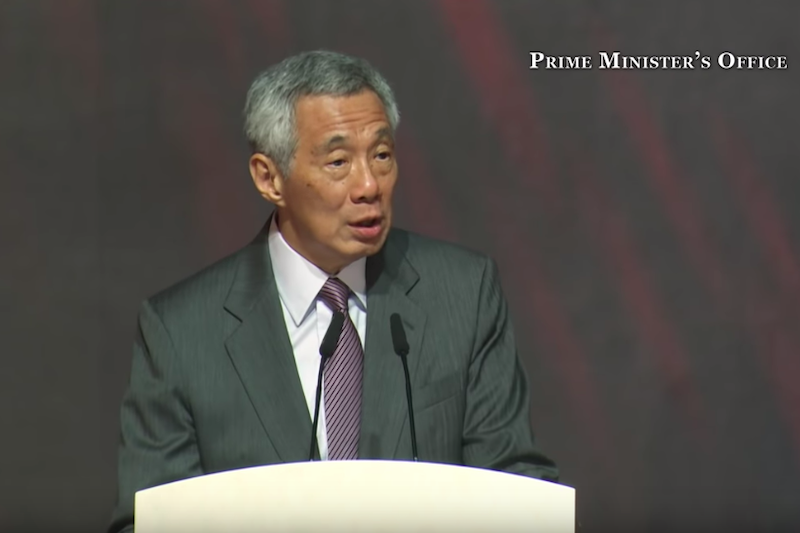A new law to be introduced by the Singapore government in Parliament will give them unprecedented power to ask online news sites to take down what it deems as “fake news” before “irreparable damage” is done.
The news was announced by Prime Minister (PM) Lee Hsien Loong on Friday, in a speech at the gala dinner of national broadcaster Channel NewsAsia’s 20th anniversary.
Under the new law, called the Protection from Online Falsehoods and Manipulation Bill, the government will have the ultimate power to take online news sources and platform to task if they disseminate “deliberate online falsehoods”.
This also includes having the ability to ask such news sources and platforms to display corrections or warnings about such “falsehoods” so that readers will be informed about these errors.
The law will be tabled for its first reading to Parliament on April 1.

PM Lee said the move helps Singapore, a “particularly vulnerable” country, stem what is an increasing worldwide trend of erroneous news reports causing hate and disharmony to spread in society.
“We are open and English speaking, our mobile and internet penetration rate is high, and being a multiracial, multi-ethnic society, we have enduring fault lines that can be easily exploited,” he explained how Singapore’s populace is vulnerable to worldwide fake news trends.
“If we don’t protect ourselves, hostile parties will find it a simple matter to turn different groups against one another and cause disorder in our society.”
PM Lee said this bill complements other public education initiatives the government has done in recent times, such as launching fact-checking website Factually – a site where Singapore residents (and anyone else who is curious) can obtain the official government wording on policies or issues of public interests.
However, some observers have pointed out how the bill might clash with demands for press freedom in the city-state.
“Singapore is where the prime minister mentions that his government is going to introduce an anti-fake news bill with implications for press freedom, at a celebration of a mainstream media broadcaster and somehow this is normal,” tweeted Kirsten Han, editor-in-chief of news site New Naratif.
Singapore is where the prime minister mentions that his government is going to introduce an anti-fake news bill with implications for #pressfreedom at a celebration of a mainstream media broadcaster and somehow this is normal https://t.co/LPtcJxq8fw
— Kirsten Han 韩俐颖 (@kixes) March 29, 2019
Singapore’s press freedom ranking continues to be among the lowest in Asia, at a dismal 151 out of 180 countries according to the 2018 World Press Freedom Index by non-governmental organization Reporters Without Borders.
“As in many southeast Asian countries, governmental plans to legislate against ‘fake news’ are seen as a threat to the freedom to inform,” the organization wrote on their website.




